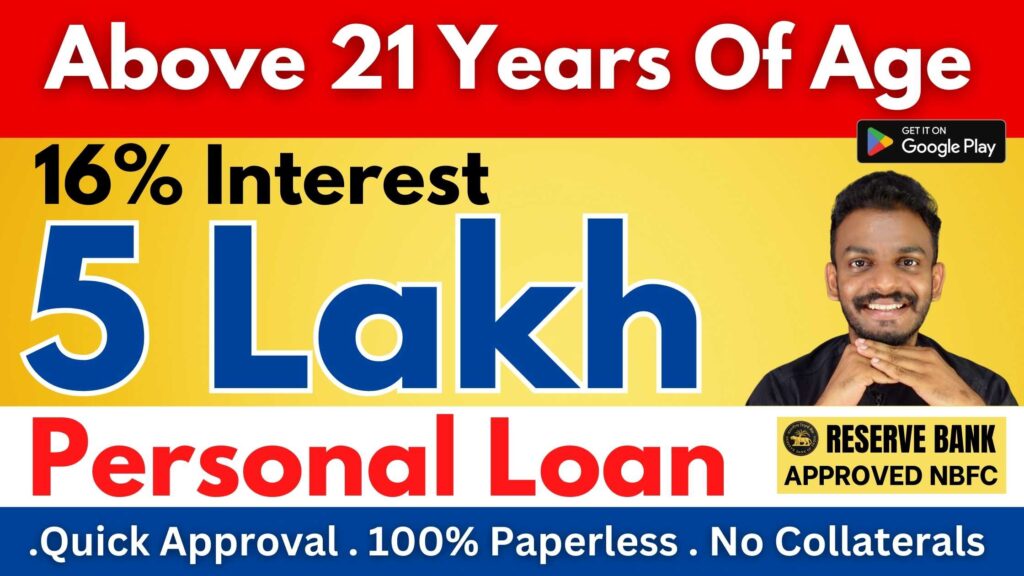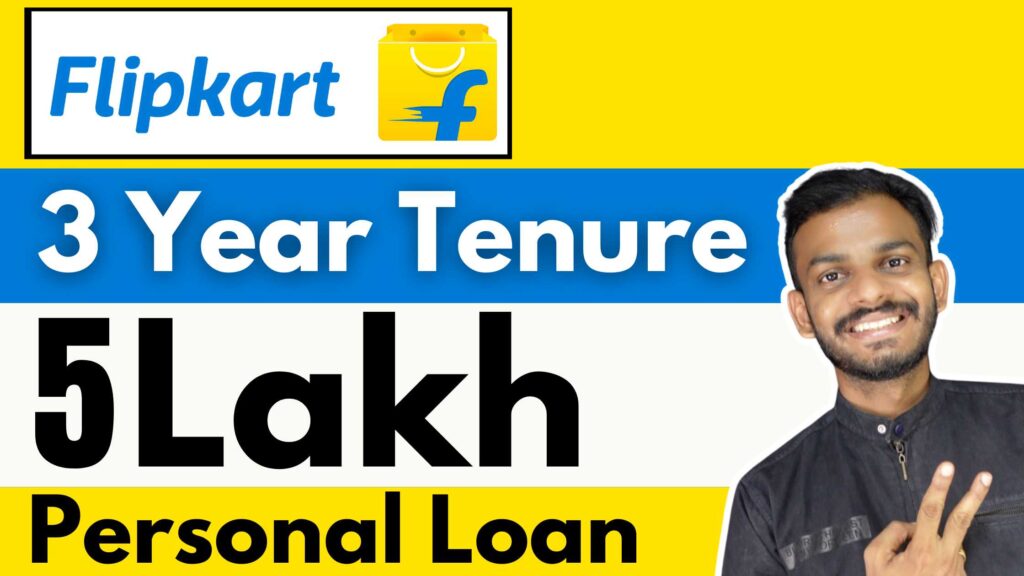Mashreq Home Loan – Get Up To AED 10,000,000 – Comprehensive Guide
Mashreq Home Loan – Get Up To AED 10,000,000
Mashreq, a trusted financial institution, recognizes the significance of this dream and has tailored its home loan offerings to cater to a diverse range of individuals. In this essay, we will delve into the key features of Mashreq home loans, highlighting their flexibility, accessibility, and the financial benefits they provide to aspiring homeowners.
Mashreq home loan : Contents ⤵️
1. Accessibility and Inclusivity : Mashreq home loan
One of the standout features of Mashreq home loan (mortgage in the uae) is their accessibility. Unlike many other financial institutions, Mashreq home loan does not mandate salary transfers, making the application process more convenient for applicants. This inclusivity ensures that individuals with varying financial backgrounds can apply for a home loan, encouraging a more diverse demographic of homeownership.
2. Loan Amount and Affordability : Mashreq home loan
Mashreq home loan (dubai uae) empower applicants by offering substantial loan amounts of up to AED 10,000,000. Coupled with a reasonable minimum monthly salary requirement of AED 15,000, this feature ensures that the loans are within reach for a wide spectrum of income earners. By providing financial solutions tailored to individual needs, Mashreq enables applicants to embark on their homeownership journey with confidence.
3. Flexible Repayment Options : Mashreq home loan
Mashreq home loan understands that financial circumstances can change over time. To accommodate these fluctuations, the institution allows prepayment of up to 25% of the outstanding loan amount annually. This flexibility empowers homeowners to manage their finances more effectively, reducing the burden of long-term debt. However, exceeding this limit incurs a penalty, encouraging responsible financial planning while providing room for necessary adjustments.
Also Read…. Get 7 Lakh Personal Loan Without Income Proof
4. Transparent Fee Structure : Mashreq home loan
Transparency in financial transactions is essential. Mashreq Home Loan fee structure is clear and straightforward, allowing applicants to make informed decisions. The bank valuation fee and pre-approval fee are nominal, ensuring that applicants do not face exorbitant costs during the application process. Additionally, the absence of late payment fees promotes responsible financial behavior, encouraging timely repayments without the fear of additional charges.

5. Conventional and Islamic Financing Options : Mashreq home loan
Mashreq home loan caters to diverse cultural and religious backgrounds by offering both conventional and Islamic home loan options. The conventional loans come with a competitive interest rate, making homeownership feasible for a broad spectrum of individuals. For those seeking Sharia-compliant financing, Mashreq home loan offers Islamic loans with transparent terms and competitive rates. This diversity in offerings reflects Mashreq Home Loan commitment to serving a multicultural society.
6. Insurance and Protection : Mashreq home loan
Mashreq home loan packages extend beyond the basic financing components. The institution emphasizes the importance of protecting one’s investment. External life insurance for conventional loans is assignable, ensuring that homeowners can safeguard their families’ financial future. Additionally, building insurance, offered at a nominal rate, provides protection against unforeseen circumstances, offering peace of mind to homeowners.
Conventional Loans : Mashreq home loans
A Closer Look
- Loan Amount and Minimum Salary Requirements: Conventional loans, with the distinctive feature of not requiring salary transfers, offer borrowers the flexibility of accessing funds without constraints. The loan amount, capped at AED 10,000,000, positions conventional loans as a viable option for a spectrum of financial needs. However, a minimum monthly salary of AED 15,000 serves as a qualifying criterion, ensuring that borrowers possess a stable financial foundation.
- Associated Fees: Financing dreams comes with associated costs, and conventional loans are no exception. The bank valuation fee, set at AED 2,625, plays a crucial role in determining the value of the property under consideration. Additionally, a pre-approval fee of AED 1,050 is in place, reflecting the cost associated with the preliminary assessment of a borrower’s eligibility.
- Partial Settlement Terms: Conventional loans offer borrowers the flexibility of partial settlement, allowing prepayment of up to 25% of the outstanding loan amount per annum. Beyond this threshold, a 1.05% penalty is imposed on the exceeding amount, capped at AED 10,500, including VAT. This nuanced approach aims to balance borrower freedom with the financial considerations of the lending institution.
- Late Payment and Bank Transfer Fees: Unlike certain financial instruments, conventional loans impose no late payment fees. However, a 1.05% penalty is applied to the exceeding amount in the case of a bank transfer, again capped at AED 10,500, inclusive of VAT. These measures are designed to foster a borrower-friendly environment while maintaining the financial integrity of the lending institution.
- Life Insurance Terms: Life insurance is a crucial component of conventional loans, ensuring financial security for borrowers and their families. The terms stipulate a 0.165% per annum premium on the outstanding loan amount. In cases where joint life incomes are considered for affordability, the premium increases to 0.33% per annum of the mortgage balance. Assignability of external life insurance is permitted, subject to a policy assignment fee of AED 3,000 plus VAT.
Also Read…. Get Free 3 Lakh Rupees For Build Your Home
Islamic Loans : Mashreq home loans
Bridging Finance and Faith Principles
Islamic loans, operating on the principles of Sharia-compliant finance, offer an alternative avenue for individuals seeking financial support. In parallel with conventional loans, Islamic loans not requiring salary transfers exhibit distinctive features that align with Islamic finance principles. The exploration of these features is paramount to understanding the nuances of Islamic finance in the context of loans.
- Loan Amount and Minimum Salary Requirements: Islamic loans maintain parity with conventional counterparts in terms of not mandating salary transfers. The loan amount extends up to AED 10,000,000, providing borrowers with ample financial latitude. A minimum monthly salary of AED 15,000 remains a prerequisite, ensuring that borrowers meet a baseline financial stability criterion.
- Associated Fees: Fees associated with Islamic loans mirror those of conventional loans, underscoring the shared financial considerations in both domains. The bank valuation fee, set at AED 2,625, ensures a standardized approach to property valuation. The pre-approval fee, standing at AED 1,050, aligns with the cost of preliminary eligibility assessments.
- Partial Settlement Terms: Islamic loans offer borrowers the flexibility of partial settlement, permitting prepayment of up to 25% of the outstanding loan amount annually. Similar to conventional loans, exceeding this threshold incurs a 1.05% penalty on the surplus amount, capped at AED 10,500, inclusive of VAT. This adherence to principles of financial fairness contributes to the ethical framework of Islamic finance.
- Late Payment and Bank Transfer Fees: Consistent with the borrower-friendly ethos of Islamic finance, no late payment fees are imposed on Islamic loans. However, a 1.05% penalty is levied on the exceeding amount in the case of a bank transfer, capped at AED 10,500, inclusive of VAT. This measured approach seeks to balance financial discipline with borrower convenience.
- Life Insurance and Building Insurance Terms: The commitment to ethical finance extends to the insurance terms of Islamic loans. A 0.17% per annum premium on the outstanding loan amount is applied for life insurance, increasing to 0.34% per annum for joint life incomes. The building insurance, set at 0.06% per annum of the property value, ensures protection for both borrowers and the lending institution.
In conclusion, the exploration of conventional and Islamic loans not requiring salary transfers unveils a tapestry of financial options for individuals seeking diverse financial goals. From loan amounts and minimum salary requirements to associated fees, prepayment terms, and insurance considerations, borrowers are presented with a spectrum of choices. Understanding the intricate details of these financial instruments empowers individuals to make informed decisions aligned with their financial aspirations and values. As we navigate the complex terrain of loans, we gain insights into the delicate balance between financial prudence, borrower flexibility, and the ethical principles that underpin Islamic finance.
Mortgages for ⤵️
Self Employed Borrowers :
Mashreq home loan extends its loan offerings to self-employed individuals on terms analogous to those provided to salaried employees without complete documentation. Noteworthy is the bank’s processing fee, set at 1% of the loan amount, an obligation for self-employed borrowers. Additionally, self-employed individuals can explore mortgage options even in the absence of full documentation, although interest rates may exhibit variability.
For the variable-rate offer:
The loan structure entails a fixed margin of 2.25% for the entire loan tenure combined with 4.48% (3-month EIBOR), culminating in an overall rate of 6.73%. It’s imperative to acknowledge the minimum floor rate of 3.99%.
Additional conditions, terms, and fees pertinent to self-employed borrowers include:
- Bank Processing Fee: Self-employed borrowers are subject to a bank processing fee equivalent to 1% of the loan amount. This fee is integral to the loan processing procedure for individuals engaged in entrepreneurial ventures.
- Service Fee: A service fee of AED 5,250 is applicable to self-employed borrowers. This fee contributes to the administrative processes involved in managing loans for individuals who are their own employers.
- Business Financials Requirement: As part of the loan application process, self-employed borrowers are obligated to furnish their business financials. This ensures that the lending institution can assess the financial health and stability of the business in question.
- Down Payment: The down payment requirements for self-employed individuals vary based on nationality:
- Nationals are expected to make a down payment of 15%.
- Expatriates (expats) are required to provide a down payment of 20%. This distinction reflects the bank’s approach to risk mitigation and loan-to-value considerations.

Mortgages for ⤵️
Non-Resident Borrowers :
Mashreq home loan extends its mortgage loan offerings to non-residents; however, the terms are adjusted to reflect potential higher risks associated with this borrower category. Non-residents, whether salaried employees or self-employed, may qualify for financing residential properties for investment or as secondary residences. It’s important to note that, akin to self-employed borrowers, non-residents are subject to a 1% bank processing fee. However, non-residents face a higher service fee and are required to make a significantly larger down payment compared to their UAE resident counterparts. Non-residents also have the option to apply for a mortgage without complete documentation, but rates may vary under such circumstances.
Also Read…. Get 5 Core Collateral Free Loan…
For the variable-rate offer:
The loan structure involves a fixed margin of 2.99% for the entire loan tenure, coupled with 4.48% (3-month EIBOR), resulting in an overall rate of 7.47%. Importantly, there exists a minimum floor rate of 4.49%.
Additional conditions, terms, and fees applicable to non-resident borrowers include:
- Bank Processing Fee: Non-resident borrowers are obligated to pay a bank processing fee equivalent to 1% of the loan amount. This fee is integral to the loan processing procedure and mirrors the structure applicable to self-employed borrowers.
- Bank Arrangement Fee: In addition to the bank processing fee, non-residents are subject to a bank arrangement fee of AED 1,050. This fee contributes to the administrative processes associated with structuring the mortgage arrangement for non-resident borrowers.
- Service Fee: Non-resident borrowers face a higher service fee compared to their UAE resident counterparts, amounting to AED 7,500. This fee covers various services related to managing the mortgage for individuals residing outside the UAE.
- Down Payment: Non-residents are required to make a significantly higher down payment, set at 50%. This substantial down payment aligns with the bank’s risk mitigation strategy for non-resident borrowers and contributes to the overall loan-to-value considerations.
Commercial Mortgages : Mashreq home loans
Mashreq home loan promises low-interest rates and easy processing for their commercial mortgage loans.
General terms/conditions:
- Loan amount up to AED 10,000,000
- Maximum loan tenor of 15 years
- Eligibility:
- Residents only
- Self-employed individuals only
- Can finance completed properties: shops, office spaces, warehouses, retail spaces, and other business units
- While not specified on their website, Mashreq may also allow non-residents to take out commercial mortgage loans.
- Variable rate offer for non-residents:
- Fixed margin of 2.99% for life of the loan + 4.48% (3-month EIBOR) = 7.47%
- Minimum Floor Rate 5.99%
Conditions/terms for non-residents:
- 1% processing fees
Also Read…. 5 Things to Know Before Taking a Bank Loans
Required Documents ⤵️
| Required documents for Mashreq mortgage application | |
|---|---|
| Salaried: | Self-employed: |
| Application form | Application form |
| Passport copy with valid visa | Passport copy with valid visa |
| Salary Certificate addressed to Mashreq | Last 6 months bank statements personal and company |
| Last 6 months original bank statements | Liability letter from the bank addressed to Mashreq |
| Liability letter from the bank addressed to Mashreq | Memorandum and articles of association |
| Photocopy of purchase contract | Audited financial statements from the last 2 years |
| Photocopy of down payment receipts | Board resolution copy |
| Trade license copy | |
| Copy of Chamber of Commerce registration | |
| Business profile on company letterhead | |
| Photocopy of purchase contract | |
| Photocopy of down payment receipts | |
Commercial Loan Application Process
Securing a commercial loan is a multifaceted process that demands meticulous attention to detail and a comprehensive submission of documentation. This essay endeavors to unravel the intricacies of the commercial loan application process by delving into the various documents required by lending institutions, with a focus on Mashreq Bank’s specific requirements. Each document serves a crucial role in assessing the financial viability and risk associated with the business seeking financial assistance. From foundational paperwork to financial statements and legal documents, we embark on a journey to understand the significance of each element in the commercial loan application dossier.

Also Read… Pre Approved Housing Loan
- Application Form: At the outset of the commercial loan application process, a comprehensive application form acts as the foundational document. This form captures essential information about the business, its structure, purpose of the loan, and other critical details. It serves as the gateway to initiate the loan evaluation process.
- Passport Copy with Valid Visa: The submission of a passport copy with a valid visa is imperative, providing the lender with essential information about the key individuals associated with the business. This includes details about residency status, which is crucial for assessing the stability and legitimacy of the business.
- Last 6 Months’ Bank Statements (Personal and Company): Bank statements, both personal and company, offer a snapshot of the financial health of the business and its key stakeholders. Analyzing these statements provides insights into cash flow, financial transactions, and overall liquidity, enabling the lender to assess the borrower’s capacity to meet financial obligations.
- Liability Letter from the Bank Addressed to Mashreq Bank: The liability letter from the existing bank, addressed to Mashreq Bank, is a critical document that outlines any outstanding liabilities or debts of the borrower. This letter aids the lender in understanding the existing financial commitments of the business seeking the commercial loan.
- Memorandum and Articles of Association: The legal structure and framework of the business are encapsulated in the Memorandum and Articles of Association. These documents provide a blueprint of the company’s objectives, structure, and operational guidelines, offering the lender insights into the business’s legal standing.
- Audited Financial Statements of Last 2 Years: Audited financial statements serve as a comprehensive financial record, showcasing the company’s performance over the past two years. This includes details on revenue, expenses, profits, and overall financial stability. The audited nature of these statements enhances their credibility and reliability.
- Board Resolution Copy: A board resolution copy is a formal declaration by the company’s board of directors, indicating their approval and support for the commercial loan application. This document adds a layer of corporate governance to the application process, demonstrating alignment among key decision-makers.
- Trade License Copy: The trade license copy is a foundational document that attests to the legality and authorization of the business to operate in its specific industry. This document is crucial for verifying the legitimacy and compliance of the business seeking the loan.
- Copy of Chamber of Commerce Registration: Chamber of Commerce registration is another layer of verification that attests to the business’s existence and compliance with regional regulatory frameworks. This document is instrumental in establishing the business’s credibility and adherence to legal requirements.
- Business Profile on Company Letterhead: A business profile, presented on the company letterhead, provides a narrative overview of the business. It encompasses key details such as the company’s history, mission, vision, and operational highlights. This document contributes to the lender’s understanding of the business’s strategic direction and objectives.
- Photocopy of Purchase Contract: In cases where the commercial loan is tied to a specific asset purchase, a photocopy of the purchase contract is essential. This document outlines the terms and conditions of the purchase, providing crucial insights into the purpose and utilization of the loan.
- Photocopy of Down Payments: Documentation related to down payments offers transparency into the financial commitment and contribution of the borrower. This information is pertinent for the lender to understand the borrower’s investment in the business and assess the risk associated with the loan.
Check out Shortly : Mashreq home loans
Mashreq home loan for Expatriates Features:
-High Loan amounts of up to QAR 7.5 Million -Loan Tenor of up to 20 Years -Attractive fixed and variable interest rate options -Nominal processing fees and charges -Loans to Qataris & Expatriates -Pre-approval facilities to identify loan eligibility -Dedicated Mortgage Relationship Manager for your banking requirements
Eligibility:
-Minimum age – 21years -Maximum age – 65 years on maturity of loan -Minimum age – 25 years. -Maximum age – 60 years for Expatriates
Fee and Other charges:
-Processing fee – 1% on the approved loan amount, or maximum QAR 25,000 -Pre-approval fee – QAR 1,000 -Pre-payment fee of Nil (Zero) to 1% on the outstanding would be charged in case of early settlement from own funds -Amendment / Re-validation Fee – QAR 500 in case of amendments made after the loan is approved/booked -Property valuation fee – at your cost
Representative example:
If you borrow QAR 10,000 over 3 years at a Representative APR of 4.6% fixed and an annual interest rate of 4.6% you would pay:
Payment per month – QAR 297.50 | Total charge for credit – QAR 710 | Total amount you repay – QAR 10,710
Please note, the actual rate applied to your loan will depend on your circumstances.
Conclusion
In conclusion, Mashreq home loan offerings exemplify a commitment to financial inclusivity, flexibility, and transparency. By eliminating rigid requirements such as mandatory salary transfers and offering competitive loan amounts, Mashreq home loan empowers individuals from various financial backgrounds to realize their dream of homeownership. The institution’s emphasis on transparent fee structures, flexible repayment options, and comprehensive insurance coverage further cements its position as a trusted partner in the journey towards homeownership. Aspiring homeowners can confidently turn to Mashreq home loan for a reliable and supportive financial solution, paving the way for a brighter, more secure future.
Which bank is best for housing loan in UAE?
Mashreq Home Loan, a trusted financial institution, recognizes the significance of this dream and has tailored its home loan offerings to cater to a diverse range of individuals.
Can foreigners get home loans in UAE?
Yes, foreigners can get a mortgage in the United Arab Emirates (UAE). Loan for residents and non-resident investors can get a mortgage to finance their real estate purchases. However, international investors’ LTV ratios will differ from those of UAE locals.



